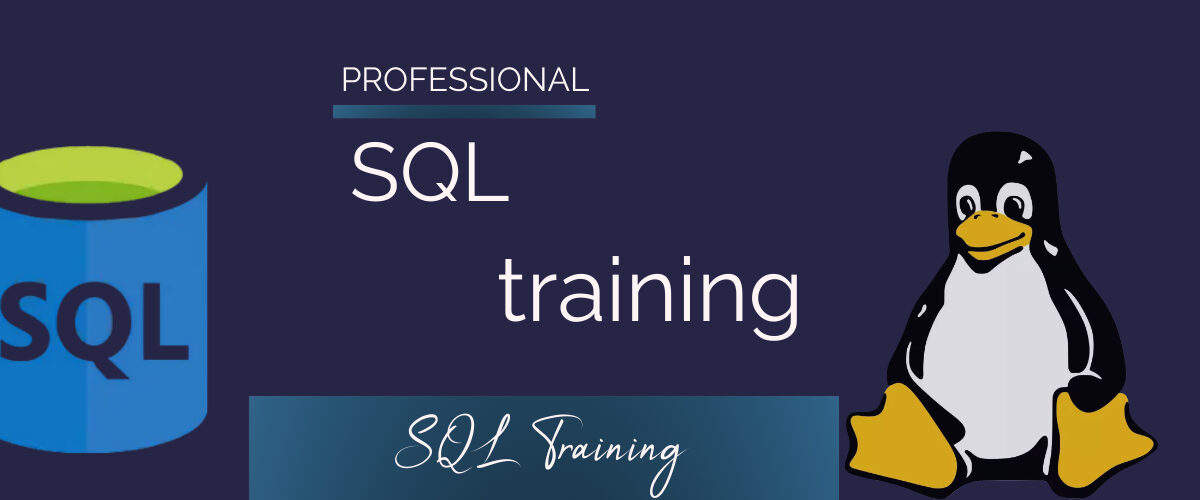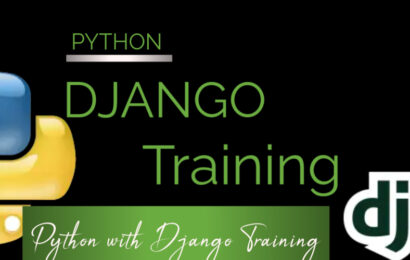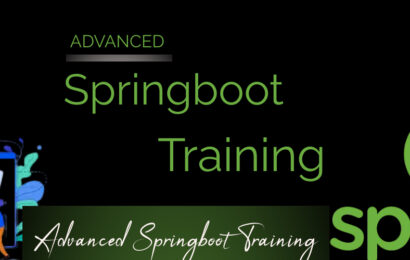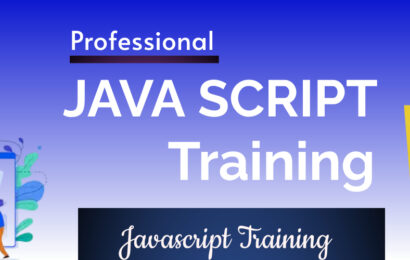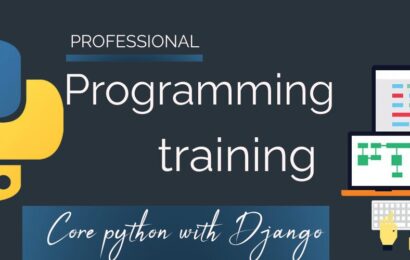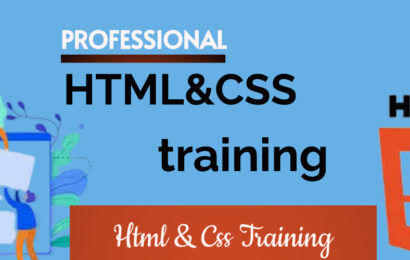SQL Certification Training in Chennai
SQL Certification Training in Chennai is essential for anyone looking to become a skilled SQL developer. There are many training institutes offering SQL training in Chennai, but choosing the best one is crucial for a successful career in this field. Look for a reputable training institute in Chennai that offers practical and hands-on training programs. The course fee for SQL certification training can vary depending on the training institute and the course content provided. Make sure to choose a training center that covers topics such as advanced SQL, Oracle SQL training in Chennai, Microsoft SQL Server, and SQL database management system.
With a certification course in SQL, you will not only enhance your SQL skills but also increase your chances of landing a job as a SQL developer or SQL DBA. Whether you prefer online training or corporate training, make sure the training institute you choose offers practical training and covers the entire SQL spectrum. From SQL commands to using SQL with Oracle databases and Microsoft Server tools, a comprehensive SQL training program will equip you with the knowledge of SQL required in the industry.
What is SQL Server? – SQL Course in Chennai
SQL Server is a relational database management system developed by Microsoft. It is used to store and retrieve data for software applications. SQL Course in Chennai provides training on how to use SQL Server to create, manage, and manipulate databases. Students learn how to write complex queries, design database structures, and optimize performance. The course covers topics such as data manipulation, data definition, and data control.
Key Features of SQL Training in Chennai
SQL Training in Chennai offers a comprehensive program designed to equip individuals with the necessary skills to work effectively with databases. The key features of this training include hands-on experience with SQL queries, data manipulation, and database management. Participants will learn how to write complex queries, optimize database performance, and troubleshoot common issues. In addition, the training covers topics such as data warehousing, data modeling, and data analysis techniques.
One of the main highlights of the SQL Training in Chennai is the focus on practical application. Participants will have the opportunity to work on real-world projects and gain valuable experience that can be applied in a professional setting. The training also includes interactive sessions, quizzes, and assignments to ensure that participants fully grasp the concepts and can confidently apply them in their careers.
Benefits of SQL Training and Certification in Chennai
SQL Server training in Chennai is highly beneficial for individuals looking to enhance their knowledge and skills in the field of database management. By enrolling in the best SQL training in Chennai, participants can gain a deeper understanding of SQL queries, database design, and data manipulation techniques. This training program equips learners with the necessary skills to work with large datasets and perform complex database operations efficiently.
Upon successful completion of SQL training in Chennai with placement, individuals can land lucrative job opportunities in top IT companies and organizations. SQL certification validates an individual’s proficiency in database management, increasing their chances of securing a well-paying job role. Additionally, certified SQL professionals are in high demand in the industry, making it a valuable credential to possess in today’s competitive job market.
Why Should You Invest in SQL Training in Chennai?
Before we delve into the specifics, it’s essential to understand why SQL training in Chennai is worth your time and investment. Firstly, Chennai boasts a thriving IT sector, with numerous companies relying on SQL for their database management needs. By acquiring proficiency in SQL, you significantly enhance your employability and career prospects in this vibrant tech hub. Additionally, Chennai’s reputed training institutes offer a conducive learning environment, expert faculty, and industry-relevant curriculum, ensuring that you receive top-notch education and practical exposure.
Why Learn SQL Training In Chennai at Payilagam?
Learning SQL Training in Chennai at Payilagam is a wise choice for those looking to enhance their skills in database management. The institute offers comprehensive training in SQL, covering all aspects from basic queries to advanced topics like joins, subqueries, and stored procedures. With experienced trainers and hands-on projects, students can gain practical experience in working with databases using SQL. The flexible timings and personalized attention make it easier for working professionals to balance their job and training. Additionally, the institute provides placement assistance, helping students land job opportunities in top companies. Overall, SQL Training in Chennai at Payilagam is designed to equip individuals with the necessary skills to excel in the field of database management.
Course Offerings and Specializations
1. Exploring Course Content
What topics does SQL training in Chennai typically cover? From the basics of database design to advanced query optimization techniques, delve into the comprehensive curriculum offered by leading institutes.
2. Decoding Course Duration and Structure:
How long does a typical SQL course in Chennai last? Explore the various options, including short-term crash courses and extensive certification programs, tailored to suit your schedule and learning pace.
3. Understanding Course Fee Structure
What factors influence the cost of SQL training in Chennai? From institute reputation to course duration, unravel the intricacies of fee structures and discover budget-friendly options without compromising on quality.
4. Navigating Training Institutes
How do you choose the right training institute in Chennai? Explore key considerations such as faculty expertise, infrastructure, student testimonials, and industry partnerships to make an informed decision.

Practical Training and Hands-On Experience
1. The Importance of Practical Training
Why is hands-on experience crucial in SQL training? Discover how practical exercises, real-world projects, and simulated environments enhance your learning journey and reinforce theoretical concepts.
2. Utilizing SQL Server Tools
Which tools are essential for SQL practitioners? Explore popular SQL Server tools and platforms, such as Microsoft SQL Server Management Studio (SSMS) and SQL Server Integration Services (SSIS), and learn how to leverage them effectively.
3. Mastering SQL Database Administration (DBA)
What skills are required to excel in SQL database administration? Delve into the realm of SQL DBA training, covering tasks such as installation, configuration, monitoring, and troubleshooting of SQL Server databases.
Emerging Trends and Advanced Topics

1. Exploring Advanced SQL Concepts
Beyond the basics, what advanced topics can you explore in SQL training? From performance tuning to data analytics, uncover the latest trends and techniques shaping the future of SQL.
2. Embracing Cloud-Based Solutions
How is cloud technology transforming the SQL landscape? Explore the benefits of SQL Azure and other cloud-based solutions, enabling scalability, flexibility, and cost-efficiency in database management.
3. Preparing for Certification Exams
Are you interested in obtaining professional certifications? Discover renowned certifications such as Oracle Certified Professional (OCP) and Microsoft Certified: Azure Data Engineer Associate, and learn how SQL training in Chennai can help you ace these exams.
Best Practices and Key Takeaways
1. Stay Consistent
Practice SQL regularly to reinforce your understanding and stay abreast of industry developments.
2. Network and Collaborate
Engage with fellow SQL enthusiasts, join online forums and communities, and participate in collaborative projects to expand your knowledge and professional network.
3. Keep Learning
The world of SQL is vast and ever-evolving. Continuously seek out new learning opportunities, whether through advanced courses, workshops, or conferences, to stay ahead of the curve.
Syllabus of SQL Server Course in Chennai
Introduction to Databases and SQL
1. What is a Database?
2. Types of Databases
3. Introduction to SQL
4. SQL Syntax Basics
5. Installing SQL Server(PostgreSQL)
Retrieving Data
1. SELECT statement and its clauses
2. Filtering Data using WHERE clause
3. Sorting Data using ORDER BY clause
4. Using DISTINCT keyword
5. Limiting Results using LIMIT, OFFSET
Filtering and Sorting Data
1. Using Comparison Operators
2. Using Logical Operators
3. Combining Conditions using AND, OR, NOT
4. Sorting Data using ORDER BY clause
5. Using NULL and IS NULL, IS NOT NULL operators
Joins
1. Introduction to Joins
2. Inner Join
3. Left Join
4. Right Join
5. Full Join
6. Cross Join
7. Self Join
Data Modification
1. INSERT statement
2. UPDATE statement
3. DELETE statement
4. Modifying data using subqueries
Aggregate Functions and Grouping Data
1. Using Aggregate Functions (COUNT, SUM, AVG, MIN, MAX)
2. GROUP BY clause
3. HAVING clause
Creating and Modifying Tables
1. CREATE TABLE statement
2. ALTER TABLE statement
3. Adding and modifying columns
4. Dropping and renaming tables
Constraints and Indexes
1. Primary Key Constraint
2. Foreign Key Constraint
3. Unique Constraint
4. Not Null Constraint
5. Creating and managing indexes
Normalization
1. 1st Normal Form
2. 2nd Normal Form
3. 3rd Normal Form
Advanced Topics
1. Stored Procedures
2. User-Defined Functions
3. Indexing Strategies
Transactions and Concurrency Control
1. Introduction to Transactions
2. Transaction Control Commands (COMMIT, ROLLBACK, SAVEPOINT)


